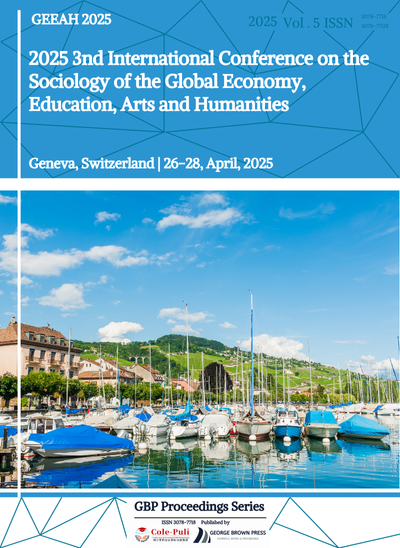A Study of the Political Economy of New Quality Productivity for High Quality Economic Development
DOI:
https://doi.org/10.71222/taq6ws06Keywords:
new quality productivity, high quality economic development, political economyAbstract
The deep adjustment of the global economic pattern and the transformation and upgrading of the domestic economy are intertwined and superimposed, and the traditional factor-driven mode is gradually declining, so that the cultivation of new quality productive forces has become an urgent need for overcoming growth bottlenecks and realizing the high-quality development of the economy. From the perspective of political economy, new productivity is not only driven by technological breakthroughs but also evolves in tandem with the adaptive adjustment of production relations, and its development is subject to the complex interaction between the institutional environment, market mechanism and international division of labor system. Current research focuses on the linear relationship between technological innovation and economic growth, but ignores the enabling effect of the change of production relations on the new quality of productivity. This paper attempts to break through the traditional analytical framework, from the dynamic adaptability of productivity and production relations to explore the evolution of new productivity and its multi-dimensional impact on the high-quality development of the economy, in order to provide theoretical support for the construction of a new pattern of development and practical paths.
References
1. D. B. Pradana, M. S. IhsanD, and F. Munichputranto, "Political economy of artificial intelligence: Critical reflections on Big Data Market, Economic Development and Data Society by Bhabani Shankar Nayak and Nigel Walton," Rev. Radic. Polit. Econ., vol. 57, no. 2, 2025, doi: 10.1080/00213624.2025.2455313.
2. W. Zhang, S. Zhao, X. Wan, and Y. Yao, "Study on the effect of digital economy on high-quality economic development in China," PLoS One, vol. 16, no. 9, Art. no. e0257365, 2021, doi: 10.1371/journal.pone.0257365.
3. J. Clark, "Cities and regions in crisis: The political economy of sub-national economic development: By Martin Jones," Econ. Geogr., vol. 97, no. 3, pp. 291–292, 2021, doi: 10.1080/00130095.2021.1902300.
4. J. Fu, H. Xue, F. Wang, and L. Wang, "The impact of high-quality energy development and technological innovation on the real economy of the Yangtze River Economic Belt in China: A spatial economic and threshold effect analysis," Sustainability, vol. 15, no. 2, Art. no. 1453, 2023, doi: 10.3390/su15021453.
5. P. Niu, K. Sun, L. Sun, and C. W. Chang, "The political economy and green innovation: A scientometric analysis," Innov. Green Dev., vol. 3, no. 2, Art. no. 100116, 2024, doi: 10.1016/j.igd.2023.100116.











